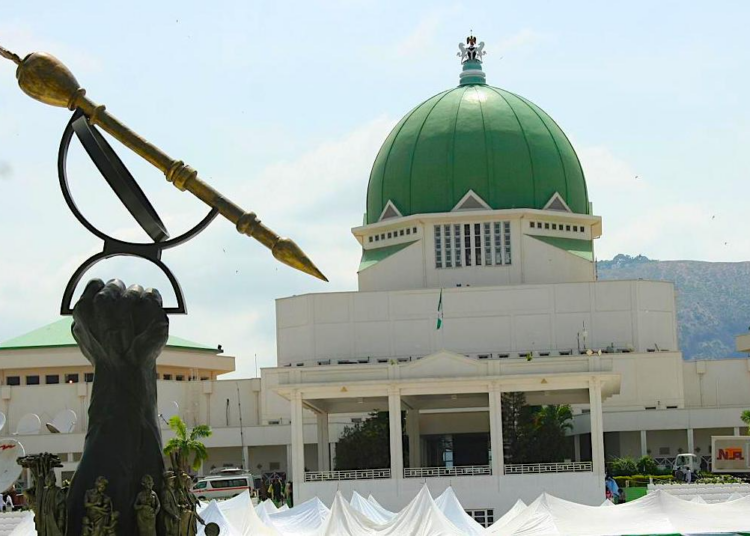The scramble for the 10th National Assembly Leadership was always going to be contentious. Such has been the nature of legislative politics since 1999. Sadly, it’s not usually on account of full dedication to the plight of the people but more about individual interest. That, also. has always been the pattern. And that is what seems to be playing out this time round.
We are not unmindful of the attempt by the national leadership of the ruling All Progressives Congress (APC), which conventionally is expected to produce the principal officers, to suggest to its lawmakers and stakeholders the person and region to occupy the positions on offer.
We are also aware of the reactions and push backs that have trailed the party’s suggestion. Clearly, these are not unexpected. It’s politics, not totally bad in itself if done properly and patriotically.
By the reckoning of this newspaper, it appears the push and shove are tilted more towards parochial interests rather than overall interest of Nigeria and Nigerians which ought to be the driving motive. To be clear, we are all for inclusivity such that a sense of belonging is felt by all the geo-political regions. In a diverse, multi-ethnic and multi-religious nation. this is essential. This clamour is beyond a need to keep with a trend but a critical ingredient of broad-based development.
However, the price of having the right persons occupy such positions cannot be overemphasised. In essence, we believe, strongly too, that the delicate balance of having a fair representation of the zones as well as competent persons is not just basic but non-negotiable.
At this point, it is beyond politics but more about the quest for quality representation. The contenders for National Assembly top offices and lawmakers cannot afford to lose the big picture as the tussle continues.
Most of the statistics in the nation’s socio-economic system are not good. Poverty Index survey reveal that 63 per cent of persons living within Nigeria (133 million people) are multidimensionally poor. The national Multidimensional Poverty Index (MPI) is 0.257, indicating that poor people in Nigeria experience just over one-quarter of all possible deprivations.
Similarly, 65 per cent of the poor (86 million people) live in the North, while 35 per cent (nearly 47 million) live in the South. Poverty levels across states vary significantly with the incidence of multidimensional poverty ranging from a low of 27 per cent in Ondo to as high as 91 per cent in Sokoto.
Over half of the population of Nigeria are multidimensionally poor and cook with dung, wood or charcoal, rather than cleaner energy. High deprivations are also apparent nationally in sanitation, time to healthcare, food insecurity and housing.
Generally, in our view, the incidence of monetary poverty is lower than the incidence of multidimensional poverty across most states. In Nigeria, 40.1 per cent of people are, also, poor according to the 2018/19 national monetary poverty line. Multidimensional poverty is higher in rural areas, where 72 per cent of people are poor, compared to 42 per cent of people in urban areas.
18 Parties Battle For Control Of National Assembly
The national MPI is reported with a linked Child MPI, which provides additional information on Multidimensional Child Poverty in Nigeria. According to the report: Two-thirds (67.5 per cent) of children (0–17) are multidimensionally poor according to the national MPI, and half (51 per cent) of all poor people are children.
The highest deprivations are in the indicator of child engagements – where over half of poor children lack the intellectual stimulation that is pivotal to early childhood development. Child poverty is considered prevalent in rural areas, with almost 90 per cent of rural children experiencing poverty.
Across the geo-political zones, the child MPI shows higher poverty in the North-East and North-West (where 90 per cent of children are poor) and lower poverty in the South-East and South-West (74 per cent and 65.1 per cent respectively). The incidence of Child MPI is above 50 per cent in all states and greater than 95 per cent in Bayelsa, Sokoto, Gombe and Kebbi.
Four million Nigerians 2.1 per cent of the population – live with a child aged 15–17 who is the first generation in that household to have completed primary school. That’s not all. President-elect, Senator Bola Tinubu will, as from May 29, 2023, feel the burden of over $103.11billion (N46.25trillion) debt left behind by the President Muhammadu Buhari-led administration.
Unlike his soon-to-be predecessor, who inherited a debt of approximately $10.32b in 2015, the president-elect will also contend with another N22.7 trillion Ways and Means Advances from the Central Bank of Nigeria (CBN). These are the real issues that should bother any incoming administration.
In that context, therefore, it is our considered opinion that a vibrant, stable, conscientious and sensitive National Assembly ought to be a given. It is a good thing that eminent Northern and Southern Elders have begun to intervene in the tussle. It is critical that they do so with the utmost interest of not just ensuring stability but helping to make the lawmakers realise the task ahead of them.





